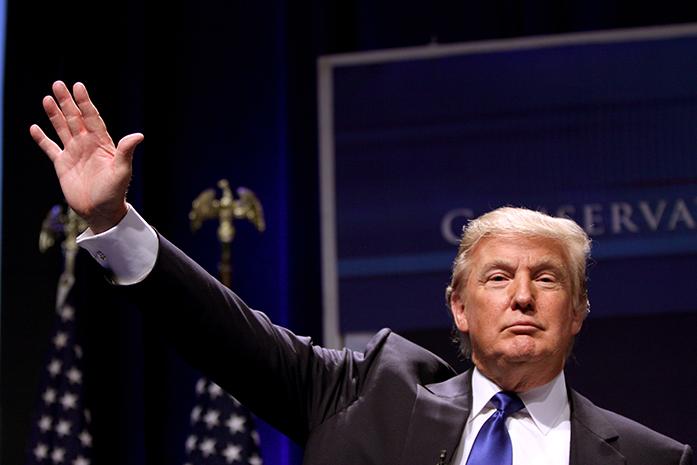Jace Brady
[email protected]
Presidential elections elicit exotic rhetoric from candidates in all parties. In an attempt to differentiate themselves from the competition, they insist on promising more, asserting extreme positions, and predicting outcomes so implausible they almost lose their credibility.Election after election, we eagerly anticipate the fruition of campaign pledges only to have our hopes hastily quashed. As we enter an election year, acquiring an ability to differentiate between substantive policy and hollow talking points is crucial. Campaign policies are rarely enacted after elections, and the belief that promises lacking in detail will be implemented is foolhardy. When a politician makes a statement, take a moment to see if any delineated details offer support or if you are simply listening to another groundless commitment of a capricious politician.
Aspiring Republican nominee Donald Trump has recently taken heat for his comments regarding temporarily disallowing Muslims from entering the country. However, when asked how such a preposterous policy would be enforced, his only suggestion was to ask people entering the country if they were Muslim. There was no in depth details on a screening process or implications for national security to bolster his comments, just feeble support for an equally weak suggestion. Such a dearth of details suggest this is simply a talking point rather than a thought-out policy Trump would be able to effectively implement. While serious candidates should be accountable for everything they say, much more concern should be allocated to serious policies with potential ramifications.
A pursuit to find detailed policy can be difficult, especially during the primary season. However, significant contenders for the presidency should be prepared to provide substantial detail on the most pressing issues. The most important portion of any policy is how it will be funded. Politicians frivolously promise changes, most of which will prove prohibitively expensive when candidates are finally in a position to push their agenda. It is easy to assure the American electorate “free” college and health care or to build 10 new aircraft carriers and seal the borders; however, a policy without an enumeration of funding should be immediately discounted.
Democratic presidential candidate Sen. Bernie Sanders has based much of his campaign on the promise of “free” college tuition at public universities. Regardless of your view on government spending or entitlements, Sanders’ plan is much more credible than Trump’s gasconades on minimizing Muslim migration. The tuition-free college plan is built on a platform of federalism, guaranteeing to federally match 2:1 every state dollar that is allocated by states to reduce college tuition. Funding will be provided through fees on stock, bond, and derivative trades by those on Wall Street. Though details on potential economic ramifications are scarce, this program provides essential details that are missing from the majority of campaign talking points.
This argument is not meant to serve as a vindication of Trump’s, or any other candidates’, statements. On the contrary, it is to condemn candidates who effortlessly offer promises so far from realistically reaching materialization presidential hopefuls can’t muster the effort to provide any details. This election, don’t be seduced by vacant rhetoric whispering about what you want to hear. Instead, seek out candidates with detailed policies that may actually be implemented and that could bring America closer to the country you want it to be.










